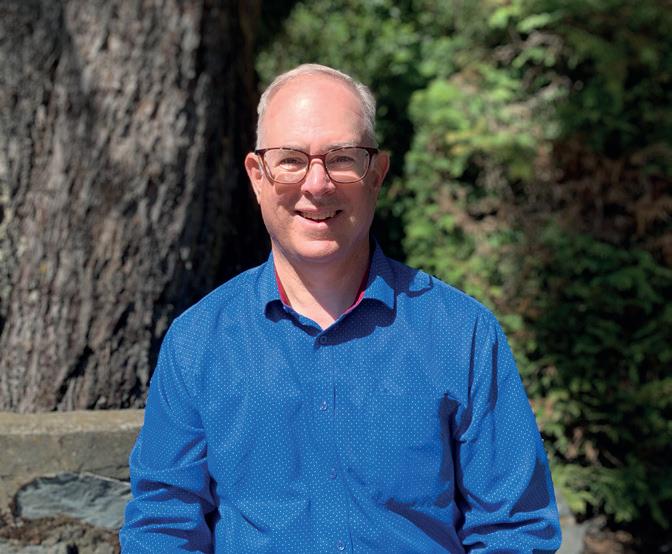
3 minute read
5 minutes with Donald Nordeng
Chief Executive Officer BioGro New Zealand
What is your background and how did your passion for organics originate?
When I was in Japan in 1992, I was fortunate to be working for a small specialty import company Taneyama ga Hara Co. Ltd as import manager with Norio Inaba. Norio’s vision was to specialise in importing organic food from around the world and introduce this concept to Japan. This is where I learned about and met many of the pioneers of the organic movement. Later my business partners and I founded the first organic certifier in Japan in 1996 which deepened my passion.
What do you think the biggest drawcard for organic farming and growing is?
In New Zealand organic has never gained much traction until recently. Comparatively in Europe and the United States between 10-15 percent of the food market is certified organic. The drawcard is really the pool of highly motivated consumers and the huge $150 billion market opportunity that continues to grow, despite the pandemic.
For farmers and growers wanting to turn their produce organic, where do they start?
It all begins with the land itself. Organic production is about removing unnecessary chemicals from production methods so the earlier this is achieved the better. It’s important to do your research and speak to those within the sector who can help you with this transition. BioGro offer an Initial Contact Meeting service, where an experienced auditor will visit your farm to gain a good understanding of your operation. Whilst there, they will answer all your questions and assess how viable it is for your property or operation to become certified. There is an absolute wealth of knowledge in organics within New Zealand, so be sure to utilise this by speaking to the experts. If you are not sure where to start, BioGro will happily point you in the right direction.
What are some of the challenges facing the organic industry?
For the New Zealand organic industry specifically, funding would be one of the biggest challenges.
This stretches across funding for both research, and schemes to help those who are looking to convert to organics. Globally we are seeing more initiatives from Government level with hope that someday this will be a reality in New Zealand, especially with policies focussing more on the environment. Another challenge is the current lack of national regulation and standards. This means that there is freedom for any producer to use the term organic on their produce, even if this claim is not true. Not only are certified organic producers having to compete with noncertified and potentially non-organic producers, but this also increases the cost for export requirements due to accreditation obligations.
How is the organic industry contributing to the message New Zealand is telling the world about our produce?
Clean, Green New Zealand — we have all heard the phrase, but many are not so convinced with the projection behind it. Organic regenerative production methods are not only better for you by avoiding potentially harmful chemicals, but also better for the environment. Globally, the term organic and its certification processes are recognised and understood — with consumers increasingly choosing products they can trust.

Where do organics fit into the new environmental initiatives and policies being put in place by the New Zealand Government?
As we start to understand the impacts of climate change, organic regenerative production is also becoming recognised as a solution to a more sustainable future. The sector is currently working with Government to implement the first organic regulations and standards to be introduced here in New Zealand. Budgets are also being put forward for research into regenerative production, with hope to better define and understand the positive implications of this way of producing.
What is coming up for BioGro in the events and knowledge sharing space?
In November 2020 BioGro held its first seminar with a focus on combatting climate change. Following on from the success of this inaugural seminar and increasing interest in organic production, we aim to put together a series throughout 2021 — watch this space.










